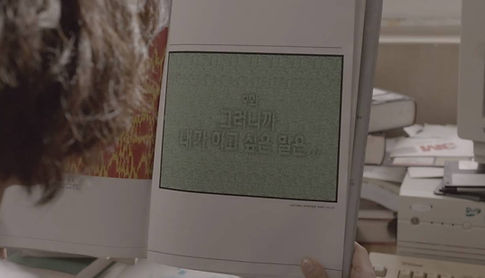

Episode 8 & 9:
By Junsoo Kim
Episode 8 : A Moment’s Decision Can Change Your Life Forever
Episode 8 begins with Ilhwa getting mad at Dongil for him meeting his first love through a TV show; Ilhwa gets mad but Dongil’s the only love is Ilhwa. Najeong’s love toward “Sseuregi” is getting bigger, but she contemplates to confess to him; “Chilbong”’s love to Najeong is also growing. Yunjin and “Samcheonpo” become a couple after “Samcheonpo” greets Yunjin’s deaf mom at bus terminal, and it is revealed that “Samcheonpo”’s real name is Kim Seonggyun. “Binggeure” secretly decides to take a gap year from university after realizing he doesn’t know what he really likes. All the secrets are exposed to the housemates when Yunjin gets drunk with them.
Episode 9: So the Thing I Want to Say Is
Episode 9 is continuation of Episode 8 over Najeong’s love of “Sseuregi” and “Chilbong”’s love of Najeong, and “Binggeure”’s decision to take a gap year. Najeong almost confesses to “Sseuregi” but fails, and expresses her mind through anger toward him; this is alleviated when “Sseuregi” picks Najeong up after she falls by running in rain. “Chilbong” invites Najeong to his baseball game, but Najeong couldn’t make it for her team project; weather changes the schedule, enabling her to visit the match which Chilbong’s team makes a big win. “Binggeure”’s brother visits Seoul after feud with his repressive father, and the brothers discuss what they really like – finding out “Binggeure” has passion in music, and his brother in cooking.
Perhaps one of the most interesting aspects that I noticed from these two episodes was how “Binggeure” struggles to find what he really likes to do. He came to med school just because he had to or he was forced to by his repressive father. He secretly decided to take a gap year and never told anyone else until exposed. Unfortunately, what “Binggeure” experienced still happens in Korean society these days. I would like to argue that young people not knowing what they are really passionate about is a result of educational pressure imposed on Koreans of all generations.
One of the big reasons is that the whole Korean society imposes a huge pressure on both parents and children. With Japanese colonization and Korean War destroying the traditional system, education has become an easy method for class mobility in Korea (Kim and Choi 2015, 438). This phenomenon contributed to parents’ intense focus on education with hope to get better. Parents’ goals often become children’s goals and children are raised in a way that they cannot go against their parents. In the case of Reply 1994, “Binggeure” entered med school not because he wanted to be a doctor, but because it was his father’s “lifelong goal” (EP 8, 45:20-45:30).

Consistently experiencing these pressures, children just get to work on the assigned goals often with private institutions every single day. As they grow up as adults with decreased influence from parents after they achieve the goal, they get confused about what they have done. They rethink about what they really like, like “Binggeure” telling “Sseuregi” he doesn’t know what he even likes (EP 8, 46:00-46:40). However, Dr. Saeji, during the lecture on Korean education, indicated that education as a means to advance through better social status has ended in Korea. Richer people spend more money on education while poorer people can’t, which increases disparity in opportunity. For example, Kim and Lee note that families with higher income pour more money to education by controlling other expenses (Kim and Lee 2010, 285). However, parents still believe in the idea that education is a ladder for better social status. This will be, or already is, a serious problem in Korean society, because it is contributing to even more pressure to next generation. Looking at these pressures I personally experienced and many other Koreans still face, I think the narration of “Binggeure” in Episode 9 can be very helpful for young Korean people – just having someone waiting and listening to what they want to say.
Word Count: 420

So…I would like to ask following questions:
-
If Korea started from the bottom where everyone was equal, why did education become the way to move to the better social status in Korea?
-
Do you think next generation in Korea will experience the same education-related pressure and hardship most Koreans experienced? Why or why not?
Bibliography
Kim, Doo Hwan and Yool Choi. “The Irony of the Unchecked Growth of Higher Education in South Korea: Crystallization of Class Cleavages and Intensifying Status Competition.” Development and Society 44, no. 3 (2015): 435-463.
Kim, Sunwoong and Ju-Ho Lee. “Private Tutoring and Demand for Education in South Korea.” Economic Development and Cultural Change 58, no. 2 (2010): 259-296.